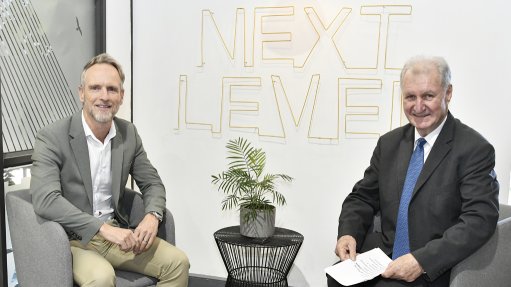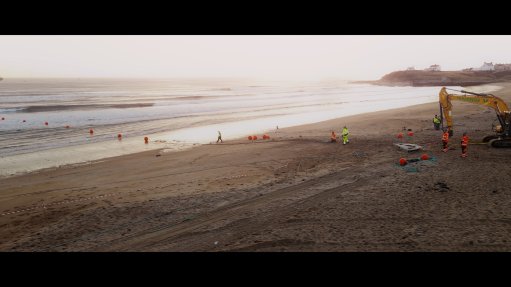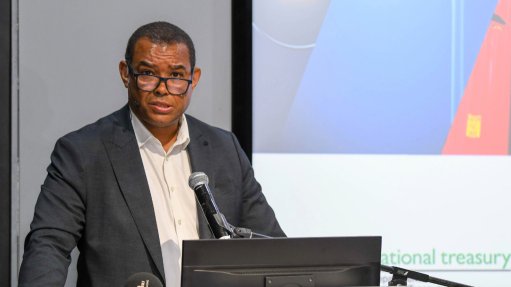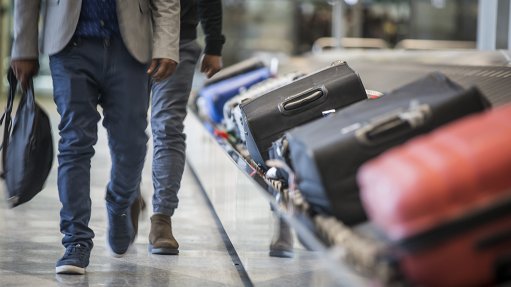SARA pushes for greater regional integration in rail development
As the Southern African Railway Association (SARA) pushes ahead with the drafting of a regional railway master plan, Namibia State-owned freight utility TransNamib CEO and SARA VP Johny Smith has confirmed the association is engaging with the Development Bank of Southern Africa on the viability of the plan.
During the SARA Rail Conference hosted this week, Smith highlighted that a regional railway plan must be customer-centric, focused on proactive services, have solid supply chain principles, promote new technology and encourage partnerships for innovation on energy, communication, intermodal freight movement, equipment handling and maintenance.
He mentioned that a regional rail master plan must question and evaluate alternative energies for the sector, particularly hydrogen. He believed Southern Africa’s railway lines to be 30 years behind on innovation and standards, compared with international railways.
SARA president Sizakele Mzimela highlighted a lack of investment in infrastructure and the absence of supporting institutional frameworks as two major issues confronting the region and the continent, despite rail’s criticality in supporting economic development.
She noted that Africa would not be able to exploit more of its mineral potential and realise more industrial potential without effective and efficient railway networks. “The key focus has to be implementation, and a better funded SARA remains the best vehicle to coordinate that implementation drive.”
Mzimela pointed out that railway transformation was not the responsibility of any one stakeholder or group, but rather that the onus was on railway operators, infrastructure managers, customers, regulators, service support teams and government, to work together.
SARA, as the specialised railway wing of the Southern African Development Community countries and with its representation of 15 member countries, hoped that more partnership and action would emanate from the 2022 SARA Rail Conference.
In a panel discussion led by SARA chairperson Fifi Peters, eSwatini Public Works and Transport Minister Chief Ndlaluhlaza Ndwandwe said the country was aggressively looking to transfer freight logistics from predominantly road to rail, owing to cost, emissions and road damage considerations.
He said eSwatini was improving efficiency within its railways, including through its connections with Transnet Freight Rail (TFR), in South Africa, and the State-owned railway company of Mozambique, Caminhos de Ferro de Moçambique.
From Angola’s perspective, national director for concession economics Eugenio de Lima Fernandes said the country had been investing heavily in its rail network, however, was currently looking for more efficiency. To this end, Angola is engaging the private sector and granting concessions on the railway line to improve freight movement.
For example, Angola awarded a 30-year concession for the 1 866-km-long Lobito corridor to a consortium comprising Vecturis, Trafigura and Mota-Engil, which connects Angola to the Democratic Republic of Congo (DRC).
The country is also progressing a free trade zone between Angola, DRC and Zambia, in efforts to improve the capacity and efficiency of freight in this region.
Meanwhile, for a regional railways integration approach to realise, State-owned railway company National Railways of Zimbabwe GM Respina Zinyanduko said much more could be done to move freight from road to rail, especially using a corridors approach between countries. She added, however, that what would hamper a regional railways approach was the fact that countries each had their own challenges that need addressing.
To this end, she suggested that participation by the private sector was key. Zimbabwe has done a number of public-private partnership projects, including in the mining sector. She explained that the country often has agreements with new mining companies in place to incentivise their development or maintenance of railway lines and provision of rolling stock.
Zinyanduko confirmed that Zimbabwe had been working on short-, medium- and long-term ways to capacitate railways, including by having private sector concessions issued in foreign currency, normally the dollar, to ensure contracts remained unimpacted by local currency movement – although she added that the Zimbabwean dollar and the country’s notorious hyperinflation had been stabilising nonetheless.
On the South African front, TFR turnaround projects manager Rudzani Ligege said the entity would continue playing a key role in regional integration, with fresh initiatives with different neighbouring railways being on the cards. He expressed concern that Southern Africa had not seen new railway lines built in a long time, despite there being no shortage of freight volumes.
He warned, however, that given Transnet’s prevailing challenges of theft, vandalism and port backlogs, South Africa first needed to focus on using what it had more efficiently, before looking at new builds.
With more coal demand than ever before, given many European countries’ struggle to meet baseload requirements, as a result of the Ukraine conflict, Ligege said it had put rail in an unprecedented spotlight. To this end, he said Transnet was considering a railway linkage with Botswana to move more coal, but the utility was focusing on more immediate challenges first.
Smith and Ligege agreed that rail had to be fixed first before more industrialisation could take place, and that optimisation before capitalisation was essential for the region.
Article Enquiry
Email Article
Save Article
Feedback
To advertise email advertising@creamermedia.co.za or click here
Comments
Announcements
What's On
Subscribe to improve your user experience...
Option 1 (equivalent of R125 a month):
Receive a weekly copy of Creamer Media's Engineering News & Mining Weekly magazine
(print copy for those in South Africa and e-magazine for those outside of South Africa)
Receive daily email newsletters
Access to full search results
Access archive of magazine back copies
Access to Projects in Progress
Access to ONE Research Report of your choice in PDF format
Option 2 (equivalent of R375 a month):
All benefits from Option 1
PLUS
Access to Creamer Media's Research Channel Africa for ALL Research Reports, in PDF format, on various industrial and mining sectors
including Electricity; Water; Energy Transition; Hydrogen; Roads, Rail and Ports; Coal; Gold; Platinum; Battery Metals; etc.
Already a subscriber?
Forgotten your password?
Receive weekly copy of Creamer Media's Engineering News & Mining Weekly magazine (print copy for those in South Africa and e-magazine for those outside of South Africa)
➕
Recieve daily email newsletters
➕
Access to full search results
➕
Access archive of magazine back copies
➕
Access to Projects in Progress
➕
Access to ONE Research Report of your choice in PDF format
RESEARCH CHANNEL AFRICA
R4500 (equivalent of R375 a month)
SUBSCRIBEAll benefits from Option 1
➕
Access to Creamer Media's Research Channel Africa for ALL Research Reports on various industrial and mining sectors, in PDF format, including on:
Electricity
➕
Water
➕
Energy Transition
➕
Hydrogen
➕
Roads, Rail and Ports
➕
Coal
➕
Gold
➕
Platinum
➕
Battery Metals
➕
etc.
Receive all benefits from Option 1 or Option 2 delivered to numerous people at your company
➕
Multiple User names and Passwords for simultaneous log-ins
➕
Intranet integration access to all in your organisation


















